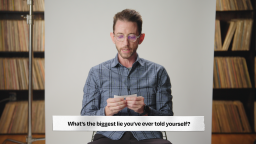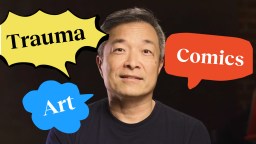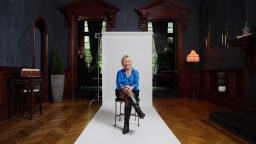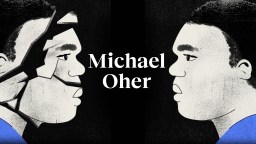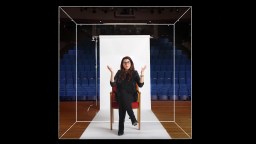Julie Plec is not what you might expect. Although she has supernatural hits such as The Vampire Diaries, The Originals, and Legacies on her résumé, there’s no pentagram necklace, black veil, or air of melancholy on the set of our latest Big Think interview. Instead, there is an abundance of laughter, smiles and an honest, vulnerable insight into what it’s like to work as a writer, producer, director, and showrunner in a cutthroat industry.
Throughout her career, TV’s queen of the undead has taken more than a few hits to her confidence and self-worth. But she’s learned a lot along the way.
Growing in the face of adversity
The 51-year-old has had a flourishing career in both television and film, starting as an associate producer in 1997 on Scream 2. In 2009, she began work on The Vampires Diaries, which instantly won over audiences and ran for an impressive eight seasons winning 37 awards, and became one of the CW network’s most-watched shows of all time.
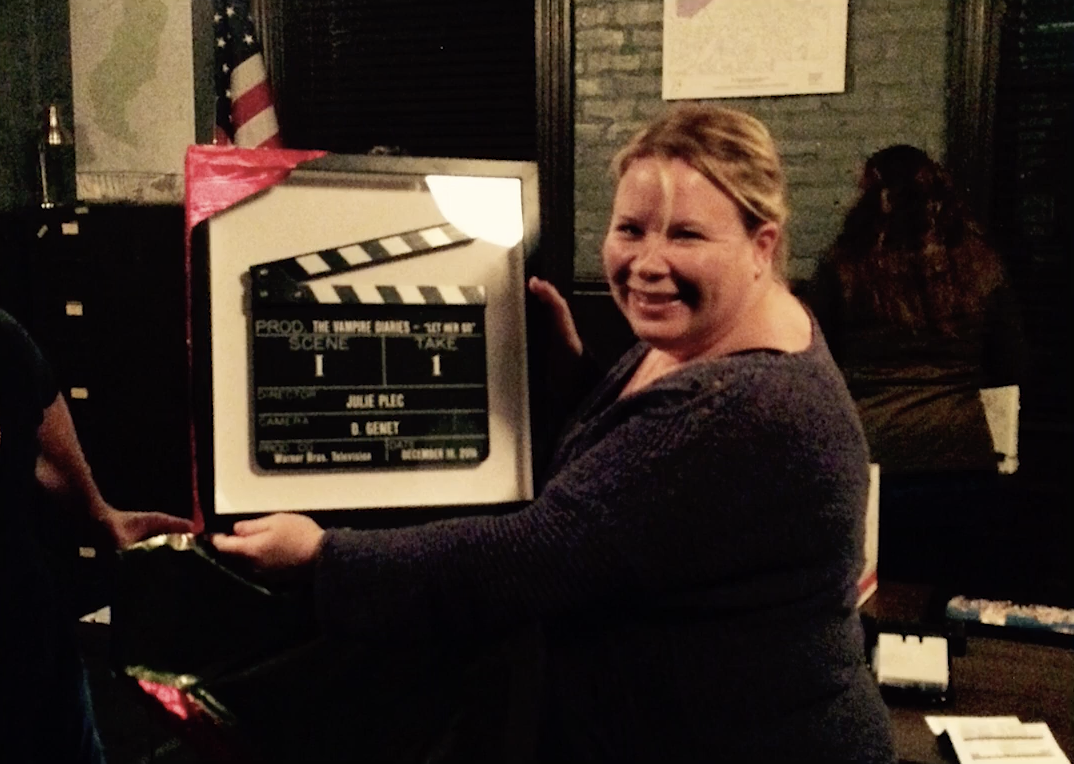
But this success did not come easy to Plec.
“One of the worst things that ever happened to me in my professional career was in my late 20s,” she remembers. “I had moved up out of the assistant realm into an executive and producing capacity, working for Kevin Williamson on season two of Dawson’s Creek.”
At first, Plec thought her time helping with the creative elements of the iconic teen drama went swimmingly. That was until she reached the end of filming. “Some feedback came my way from the bosses who write the checks. It said that my involvement had been disruptive,” she reveals. “I remember hearing that for the first time and thinking these people don’t get me at all.”
It set back my confidence by about a decade.
Julie Plec
“We’re all capable of getting feedback, we need to learn and shape ourselves. But to get the kind of feedback that’s such a gross mischaracterization of who you are was devastating. It resulted in me being blacklisted from the network, losing out on at least one job. It set back my confidence by about a decade.”
It’s no spoiler that Plec bounced back and came to terms with the event that almost derailed her promising career. Through hindsight, she was able to grow and let go of the negative experience. “I’m finally able to look back at it through the lens of experience,” she says. “What I thought was me trying to own my own space creatively was suffocating the space of other people. When I was finally able to acknowledge that and take responsibility, while also acknowledging that I was still deeply wronged, it gave me strength as a leader.”
Coming to terms with death
Although it may seem she has a fascination with the macabre thanks to the plethora of ghoulish productions she’s been involved in, Plec admits that death is actually a profound fear of hers.
“As a writer, I love to tell stories about loss and grief and the emotion that surrounds those feelings,” she says. “I like to try to put those things into the most entertaining package I can put them in. But I’m codependently terrified of leaving people behind and them having to face that grief.”
Has her subconscious been the reason for her involvement in so much material about characters that can live forever? Possibly. But there is a conscious way she’s trying to deal with her mortality.
“I’ve been thinking about spirituality because I’ve been agnostic my whole life,” she says. “I never really understood why people invested in religion. But a Catholic friend’s grandfather passed away, and within a year her grandmother took a turn and passed away too. She was very emotional and saying goodbye to her grandmother. Her grandmother said, ‘Don’t be sad for me, this is a happy time because I get to be reunited with your grandfather.’ I thought that was so beautiful and how sad it was to grow up without any spiritual foundation.”
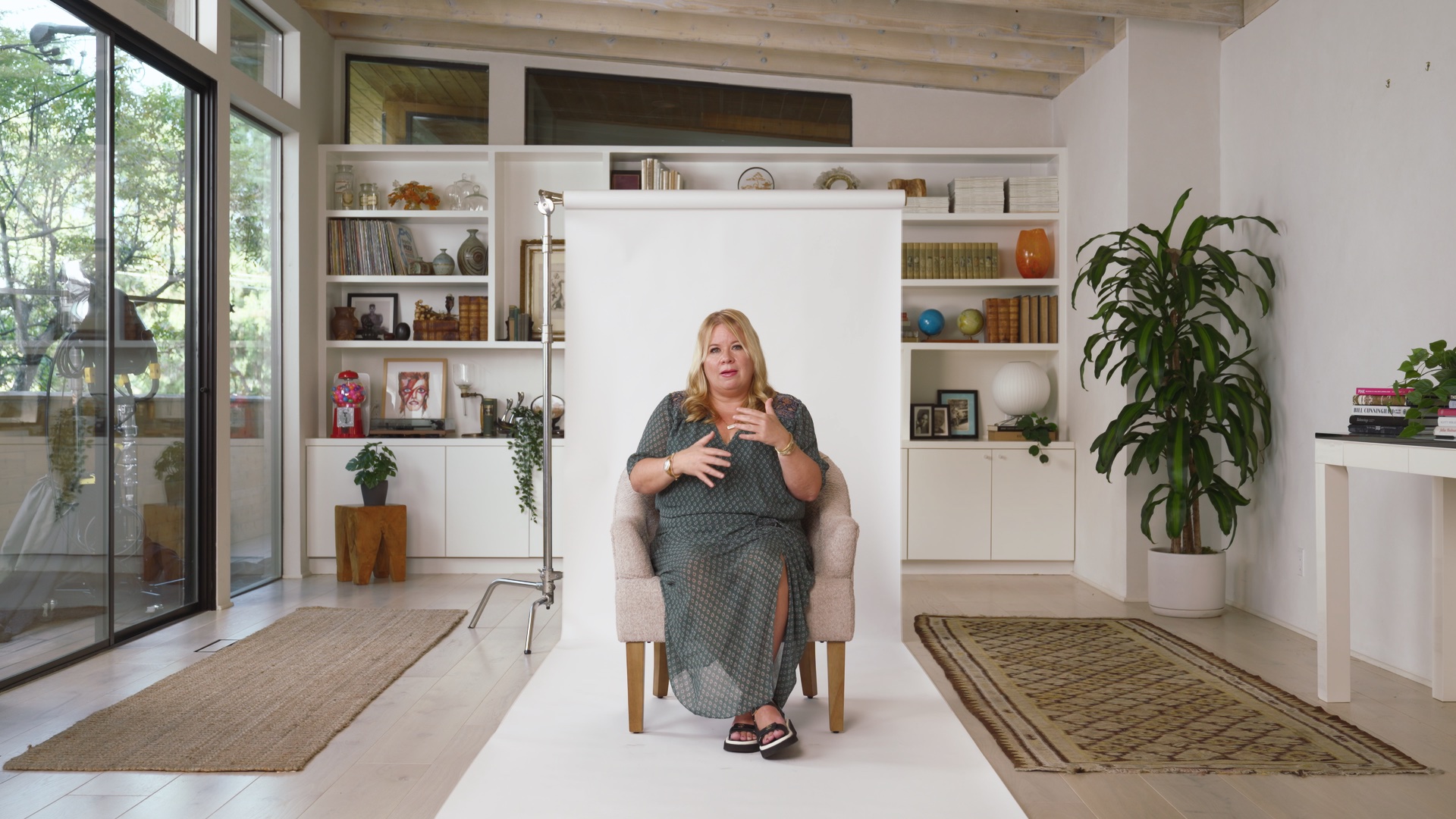
Learning to forgive yourself
While she was able to analyze and look past the transgressions of Dawsons Creek-gate, there is one person she still has issues with: herself.
“I am insecure in a lot of ways, but I’m also very self-assured,” she says. “It’s not that I have insecurities and that I wish to be perfect, it’s that I punish myself deeply for being insecure. It’s the one thing holding me back.”
Through therapy, Plec has tried to resolve this self-punishment by switching to self-love, a method she’s still trying to get to grips with.
My goal is to find a way to forgive myself for that and to love myself. It’s an amazing journey I’ve been on.
Julie Plec
“I thought I was supposed to punish myself for everything. But that embarrassing thing you said eight years ago at that party, do you think that person remembers? Do you think they don’t have their own list of things they’ve said at parties?
“Realizing that it’s okay to talk yourself out of feeling bad about yourself like a friend would do has been a real transition for me. My goal is to find a way to forgive myself for that and to love myself. It’s an amazing journey I’ve been on.”
We interviewed Julie Plec for Question Your Perception Box, a Big Think interview series created in partnership with Unlikely Collaborators. As a creative non-profit organization, they’re on a mission to help people challenge their perceptions and expand their thinking. Often that growth can start with just a single unlikely question that makes you rethink your convictions and adjust your vantage point. Watch Julie Plec’s full interview above, and visit Perception Box to see more in this series.
Words: Jamie Carson
JULIE PLEC: Has anybody figured out how to do this gracefully? This is getting deep. I am Julie Plec. I'm a writer, producer, director, showrunner, and all around Jolly Good Time.
I can answer the first part of this, but I don't know about the second. I think it's just from birth. My entire career as a writer has been spent with me feeling and fundamentally believing that I am not a writer.
I took this one writing class in college, just one. The teacher had a very specific method and it made no sense to me, and the process was so painful. And I thought, "Well, that was terrible. I never want to do that again." And every single time I sit down to start writing, I go through that feeling, which is that, "I am not good at this. This is not going to be good. People are not going to like it. And this one massive success I had is just all a fluke." But I am a writer, so, I had to really shift my way of looking at my own insecurity, about my own abilities because no matter what I feel on the inside about what I'm capable of I mean, who hasn't?
I think viewing something as a blessing, that part of the sentence, is the hardest part of life. I'd been working professionally for about six years. I had moved up out of the assistant realm into executive and a producing capacity. And at the end of the season, feedback came my way from the higher-ups that my involvement had been disruptive. I was characterized coming out of that experience by at least one person as a I remember hearing that for the first time and thinking, "Well, my God, these people don't get me at all."
I had worked so hard and I had been so deeply invested in it, and that was so crushing to hear. That feedback resulted in me being blacklisted, and it set back my confidence by about a decade. And then time goes by and the job comes back and the confidence tries to come back and the leadership comes back and you start to see other younger people in the same situation I was in. And you realize that does read as entitlement. It does read as inexperience. And so I was finally able to look back and say, "All right, like now let's look at it through the real lens of season and experience."
When I was finally able to take responsibility for my own part in it, it gave me more strength as a leader. And also humility is incredibly important when you are in a position of power. And that little bump in my career gave me a cold bucket of ice water of humility.
Death. But- not the act of being dead. It's a little bit of a pathological fear, to be honest. And it's probably done quite a lot to prevent me from doing like normal, natural things like getting married and having children. As a writer, I love to tell stories about loss and grief. - 'I'm so sorry that you've lost so many people. - I still have you.' - And as you get to the end of your time on this Earth, what are you most afraid of?
I think the answer is I am most afraid of My insecurities have somehow convinced me that I need to do something and I need to do it so well, it needs to be perfect. And when I'm not perfect, it is this self-punishment of I'm yelling at myself, I'm disappointed in myself. I am critical of myself, and I have really, really noticed that that is the single thing that I can point to holding me back.
I've always tried to figure out the genesis of this belief, and to be honest, I have taken it all the way back to like one of my first memories as a 4-year-old kid. I was taking a swimming lesson and a teacher said to me, "Hey, can you just jump in and then turn around and swim?" And so I jumped off the side of the pool and while I was in the air, I did a little like ballet turn. And when I emerged from underwater, they were laughing at me. And I remember in that moment as a 4-year-old being so insecure and embarrassed that I had misinterpreted the instruction and had done it wrong. Many years later, as I'm sort of re-litigating this moment, somebody said to me, "Do you actually think that those girls were laughing at you because you did it wrong? Why don't you, like your adult- you go visit that scene and watch it through your adult eyes?" And I said, "Oh! They thought it was really cute. The girls weren't laughing at me, they were laughing with me."
And it is my base, core limiting belief that I am doing it all wrong.
What my goal is, is to now find a way to forgive myself for that and to love myself in spite of that. And that is this really amazing journey that I've been on that I highly recommend.


